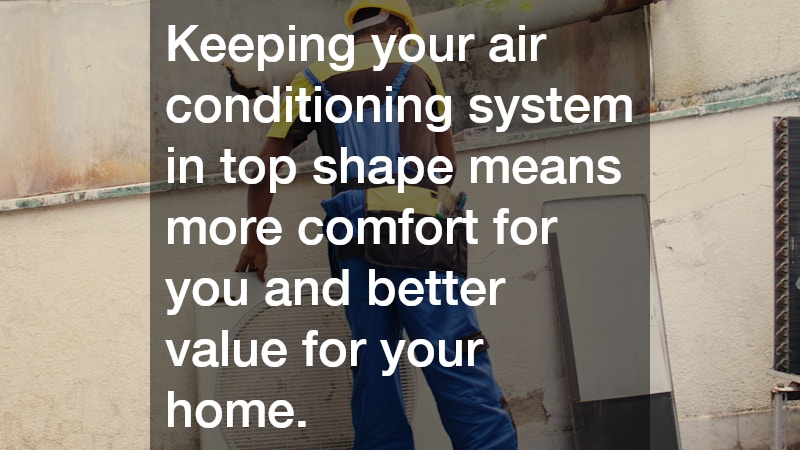4 Air Conditioning Facts Every Homeowner Should Know
Air conditioning is a vital part of everyday comfort in Australian homes, especially during long, hot summers. With climate conditions pushing the demand for cooling solutions higher each year, homeowners are relying more than ever on systems that keep their spaces cool, energy efficient and healthy.
While most people are familiar with the relief that a functioning air conditioner brings, many don’t realise how much goes into maintaining and selecting the right system. Whether you’re using a split system, ducted unit or considering a new installation, these facts about air conditioning will help you make informed choices for long-term comfort and savings.
Correct Installation Impacts Long-Term Efficiency
It’s easy to underestimate the importance of professional installation, but getting this step wrong can lead to years of high running costs and underperformance. An incorrectly installed unit might not be positioned to distribute air properly or may not be suited to the room size and orientation.
The best results come when the system is matched to the room’s dimensions, insulation and usage patterns. For instance, a unit that is too small will constantly run without cooling efficiently, while an oversized one will switch off too quickly and fail to manage humidity. Both scenarios increase your energy bills and shorten the system’s life.
Engaging a licensed technician ensures your air conditioning system is installed according to manufacturer specifications and Australian standards. It also provides peace of mind knowing your home will stay cool without the worry of costly errors or adjustments down the track.
Air Conditioning Requires Regular Maintenance
Just like any machine that works hard year-round, your cooling system needs consistent care to operate at its best. Over time, dust builds up in filters and on coils, which reduces airflow and forces the unit to work harder. If left unchecked, this can lead to mechanical problems, higher electricity use and even health issues caused by poor indoor air quality.
A clean system performs more efficiently, delivers better cooling and prevents minor faults from turning into expensive repairs. Most manufacturers recommend checking and cleaning filters every one to three months depending on use. Outdoor units should be kept free from leaves, dirt and debris to maintain airflow.
Having your air conditioning system professionally serviced at least once a year is highly recommended. Technicians can identify issues early, check refrigerant levels, clean components and test electrical connections. A well-maintained unit is more reliable during heatwaves and tends to have a much longer lifespan.
Energy Ratings Can Save You Money
When purchasing a new unit, the energy efficiency rating should be a top priority. In Australia, the Zoned Energy Rating Label makes it easier to compare how air conditioning units perform across different climate zones. Choosing a model with higher efficiency not only reduces your environmental footprint but can significantly lower your power bills.
While more energy-efficient models may have a higher upfront cost, they pay off over time with lower operating expenses. Inverter technology is a popular choice because it adjusts output to maintain a consistent temperature, using less electricity compared to traditional systems that cycle on and off.
Understanding your household’s needs and climate zone can help you select a unit that provides the right balance of performance and energy savings. You can also check government rebates or incentive programs that reward energy-efficient choices, adding even more value to your investment.
Your System Affects Indoor Air Quality
Aside from keeping you cool, your air conditioning system plays an important role in managing the quality of the air inside your home. Filters in the system trap dust, pollen, pet dander and other airborne particles, which helps reduce allergy symptoms and create a healthier environment.
Some systems also offer humidity control, which is especially useful in tropical or coastal areas where excess moisture can lead to mould growth and discomfort. Maintaining the right humidity level helps protect your home’s structure, furniture and air quality.
To get the full benefit, filters need to be clean and in good condition. Upgrading to a system with advanced filtration options may be worth considering, especially for families with children or individuals who suffer from respiratory conditions.
Air conditioning is more than just a way to stay cool—it’s an essential part of home comfort, efficiency and health. Understanding how your system works, how to maintain it and what features to prioritise when buying can make a big difference in how well it serves your household.
From correct installation and routine maintenance to energy efficiency and air quality, every aspect plays a role in long-term performance. By paying attention to these important facts, you’ll enjoy reliable cooling, lower bills and peace of mind knowing your home is properly equipped to handle the heat.
If it’s been a while since your last service or you’re unsure whether your current system is right for your space, now is the time to consult a licensed technician. Keeping your air conditioning system in top shape means more comfort for you and better value for your home.

